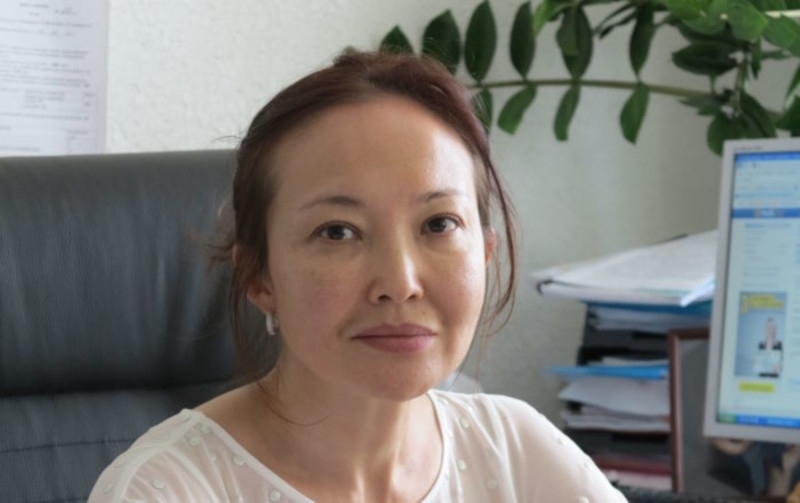
Photo: uz.sputniknews.ru
Gulnara Krasnova, Head of the International Education and Partnership Committee of the Eurasian Peoples’ Assembly and Principal Research Scientist of the RANEPA, took part in the online conference of Rossotrudnichestvo and the Russian International Affairs Council “Public Diplomacy and Russian Universities in the Modern “Digital World”.
The text of her speech:
- Dear colleagues!
I thank you for inviting me to speak today within the virtual walls of Rossotrudnichestvo and the Russian International Affairs Council. The topic of my speech today is “Scientific Diplomacy in the Era of Digitalization”.
As a researcher of the phenomenon of scientific diplomacy, I closely monitor all Russian and foreign publications and speeches. One of the last was the speech of Foreign Minister Sergey Lavrov with an online lecture on the YouTube channel of the Alexander Gorchakov Public Diplomacy Fund on April 21, 2020.
I won’t repeat the Minister's speech, especially since there are probably colleagues in today's audience who saw it. But I would like to draw attention to the emphasis that the Minister made on the role of scientific diplomacy in today's environment.
First. There is a need for interaction between scientists from different countries in the context of global challenges. Moreover, scientific diplomacy should operate as a part of a good-neighborly policy, which, unlike the policy of “soft power”, acts in the interests of all without exception, and does not pursue only the national interests of individual countries.
Second. The ways and directions of scientific diplomacy development should be determined by scientists. For example, if there is a request from Russian and Italian scientists to jointly develop a vaccine against coronavirus infection, the Russian Foreign Ministry, as the Minister said, is ready to support and assist this effort in every possible way. In other words, scientists establish contacts directly on the topic they are interested in, and the function of the Foreign Ministry is to help them work out if necessary.
How prepared is the Russian scientific diplomacy to formulate such requests? And how relevant is the topic of scientific diplomacy in Russia now? I turned to GOOGLE TRENDS with these questions to find out how many requests on the topic of scientific diplomacy have been made in the last five years in all countries of the world and Russia.
According to GOOGLE TRENDS, the number of requests has increased over the past year, with Belgium, the United States, and India among the leading countries for this request.
Unfortunately, the number of leading countries does not include Russia, even worse, GOOGLE TRENDS reported on Russia: “There is too little data for this query.”
It is clear why Belgium is the leader: Brussels is the capital of the EU, and the topic of scientific diplomacy is actively developed in the EU in three directions:
- European leadership in cultural, scientific and innovation diplomacy;
- the creation of scientific diplomacy for Europe;
- science for diplomacy in solving global problems.
I attribute the small number of requests for Russia primarily to the fact that scientific diplomacy is mainly the focus of attention of political scientists, international experts, and diplomats. Representatives of other Sciences have not yet joined it in the general mass.
Another point is related to the lack of well-developed mechanisms and tools for scientific diplomacy. It is obvious that the main tool - academic mobility, that is, physical movement due to coronavirus infection in the next couple of years will not work for obvious reasons.
Therefore, the tools of digital diplomacy can become the working tools of scientific diplomacy. One of the promising areas, in our opinion, can be the development of an integrated information system that provides multilateral interaction between Russian and foreign representatives of the scientific community, that is, a digital platform for the development of scientific diplomacy.
I must say that the competition for the development of a digital platform has now been announced by the Ministry of Education and Science of Russia, and its concept was developed last year. We have to state that the concept does not contain a single word about scientific diplomacy, although the possibility of interaction with foreign scientists as a part of international scientific and technical cooperation is provided. But let's not forget about the goals of scientific diplomacy and the context that the Foreign Minister spoke about: namely, scientific diplomacy is a system of interaction between scientists to find joint solutions to global challenges in the context of good – neighborly policy.
And, of course, the relevance of scientific diplomacy, its complexity and diversity, lack of development, as well as its great practical significance require the participation of representatives of all sciences and Russian universities. We need a separate program, we need ideas on new tools for scientific diplomacy, and, of course, we need platforms for discussing forms and tools of interaction with foreign colleagues, such as today.
Thanks for your attention!


